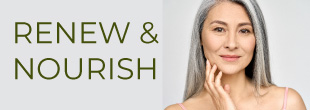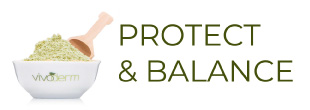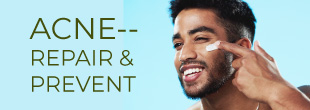Many of you may be curious, what is Ayurveda and how’s it going to help my acne?
The word Ayurveda translates to “the science of life” (Ayru – life and Veda – science). Ayurveda has brought true health and wellness to millions of individuals throughout the ages with simple changes in daily living practices. Incorporating just a few of these proven methods into your lifestyle can bring about radical changes in your life.
It is currently considered a form of complementary and alternative medicine (CAM) within the United States of America, but this ancient art of healing has been practiced continuously for over 5,000 years.
Where Ayurveda differs is in its approach. Unlike other treatment methods, Ayurveda is a comprehensive, holistic system that uses a variety of therapies in an attempt to bring about fundamental change in a person’s lifestyle.
Ayurveda states that each person is unique, exhibiting a distinct energy pattern that is a combination of physical, mental and emotional characteristics. These energies manifest themselves within three doshas, or regions within the body. The three doshas and their perceived locations are vata (colon), pitta (small intestine), and kapha (stomach).
There are more than 20 types of Ayurvedic treatments. These include herbs, nutritional changes, healing oils, massage therapy, meditation and breathing exercises, yoga and other forms of exercise, as well as inducing a person to sweat, move his or her bowels, or even vomit to cleanse the body of toxins.
According to Ayurveda, ojas is the source of the body’s immunity and the subtle substance that gives healthy skins it’s natural glow. When ojas is depleted, the immune response is weak and the skin becomes lifeless. Low ojas and low immunity result from the same cause: an overload of physical, chemical or psychological stress. Ayruveda describes this overloaded condition as an imbalance of the three doshas, and seven dhatus (or body tissues).
For example, acne rosacea is a blood disease and therefore originates in the second tissue. Whether the stressor is the wrong food or an undigested emotion, it takes a couple of weeks from the time the stress occurs for this type of type to break out. Cystic acne, on the other hand, is a disease of the fat tissue–or fourth dhatu-and takes as long as three to four weeks to appear on the skin. Cancer, a disease of the bone marrow and reproductive tissue –the sixth and seventh dhatus, may exist in the body as long as seven years before being discovered.
The basic premise here is one that western medicine is only now beginning to recognize–that every organ, tissue and cell in your body, are directly connected to each other. The skin and the mind form from the same embryonic tissues in the womb. Our skin can be seen as our second brain and the mirror of our thoughts and emotions. What you eat or drink can affect your mind as equally as how you think or feel can affect your body. This is experiential fact, for any of you who may have enjoyed too much alcohol at one time or felt your stomach turning the last time you were nervous or upset.
Ayurvedic practitioners believe that they must first identify which of a person’s doshas are out of balance before suggesting treatment methods. Symbiotically, whatever substance is absorbed into the skin will have an effect on the individuals’ body tissues and vice versa.
That said, there are some specific treatments that many recognize as effective treatments for skin conditions. For starters, regardless of the skin condition, Ayurvedic practitioners suggest staying hydrated. Ayurvedic practitioners believe that water helps to naturally stabilize dry or oily skin. Drinking enough water also helps prevent the loss of moisture through the skin, which helps to promote overall wellness.
Ayurveda also recommends adhering to a daily regimen for proper skin care, including the use of a natural soap and the use of natural skin moisturizers. This is true whether a person has naturally dry skin or suffers from a more serious condition such as psoriasis. The key is to make sure that the moisturizer is in fact, natural, containing only substances such as aloe vera—a natural antibiotic that many believe is particularly helpful in the treatment of many skin conditions. Unfortunately, many commercially available moisturizers contain preservatives and other chemicals, and do not fully absorb into the skin, instead remaining on the surface and sometimes clogging pores as a result.
In addition to proper hydration and skin care, Ayurvedic medicine has identified three natural supplements that appear to help treat a wide range of skin conditions—neem, haemafine syrup and khadir. All three of these are widely prescribed to treat acne, psoriasis, and eczema, although many believe they can be used to treat any skin condition. The tree stem, root, and bark of neem, a large evergreen tree, have antibacterial properties. It is used in supplement form to treat skin conditions. In addition, many Ayurvedic soaps contain neem extract. Haemafine syrup is a natural solution made up of more than a dozen herbs. It is used as a remedy for all types of skin diseases through its natural blood purification properties. Khadir, also known as the acacia catechu herb, is another natural blood purifier used to treat skin conditions.
Besides supplements, some Ayurvedic sources also suggest that a person with a skin condition receive an abhyanga, a traditional Ayurvedic massage that uses herbalized oils to draw toxins out through the skin.




